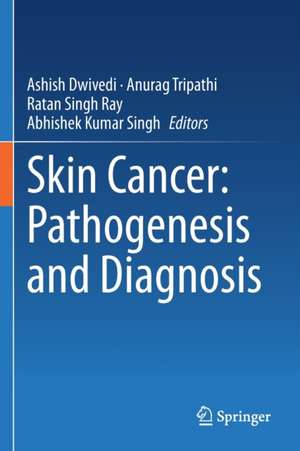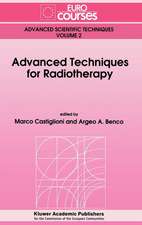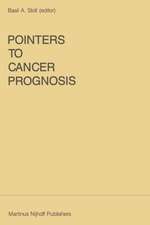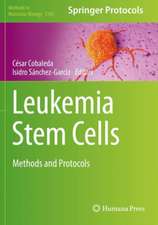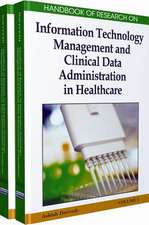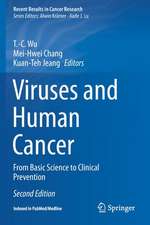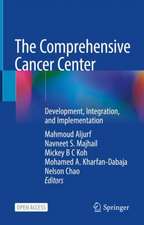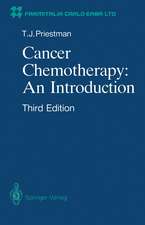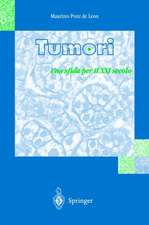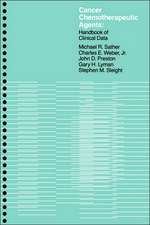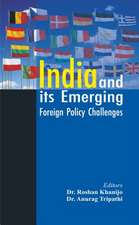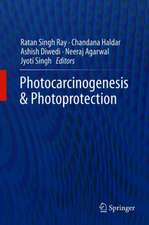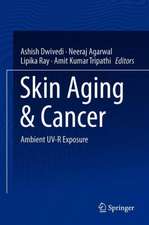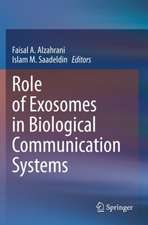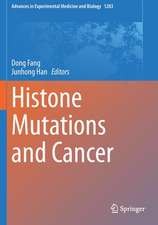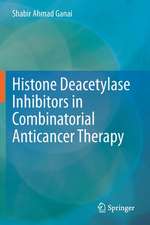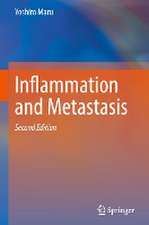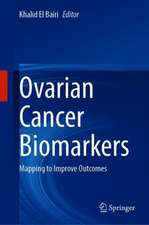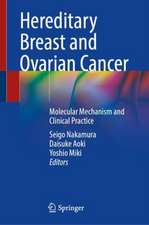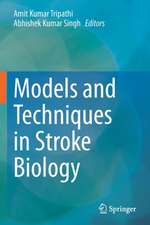Skin Cancer: Pathogenesis and Diagnosis
Editat de Ashish Dwivedi, Anurag Tripathi, Ratan Singh Ray, Abhishek Kumar Singhen Limba Engleză Paperback – 3 aug 2022
| Toate formatele și edițiile | Preț | Express |
|---|---|---|
| Paperback (1) | 1281.49 lei 6-8 săpt. | |
| Springer Nature Singapore – 3 aug 2022 | 1281.49 lei 6-8 săpt. | |
| Hardback (1) | 1288.48 lei 6-8 săpt. | |
| Springer Nature Singapore – 2 aug 2021 | 1288.48 lei 6-8 săpt. |
Preț: 1281.49 lei
Preț vechi: 1348.94 lei
-5% Nou
Puncte Express: 1922
Preț estimativ în valută:
245.21€ • 256.71$ • 202.90£
245.21€ • 256.71$ • 202.90£
Carte tipărită la comandă
Livrare economică 05-19 aprilie
Preluare comenzi: 021 569.72.76
Specificații
ISBN-13: 9789811603662
ISBN-10: 9811603669
Ilustrații: VIII, 250 p. 27 illus., 20 illus. in color.
Dimensiuni: 155 x 235 mm
Greutate: 0.37 kg
Ediția:1st ed. 2021
Editura: Springer Nature Singapore
Colecția Springer
Locul publicării:Singapore, Singapore
ISBN-10: 9811603669
Ilustrații: VIII, 250 p. 27 illus., 20 illus. in color.
Dimensiuni: 155 x 235 mm
Greutate: 0.37 kg
Ediția:1st ed. 2021
Editura: Springer Nature Singapore
Colecția Springer
Locul publicării:Singapore, Singapore
Cuprins
Chapter 1. Cancer of the Skin:Type and Etiology.- Chapter 2. Therapeutic intervention in skin cancer: Future prospects.- Chapter 3. Melanin Based Classification of Skin Types and Their Susceptibility to UV-induced Cancer.- Chapter 4. The Epidemiology of Skin Cancer Worldwide.- Chapter 5. UV-R induced Vitamin D synthesis and skin cancer.- Chapter 6. The role of microbiome in the induction, diagnosis and therapy of skin cancer.- Chapter 7. Skin Cancer: Molecular Biomarker for Diagnosis, Prognosis, Prevention and Targeted Therapy.- Chapter 8. Therapeutics intervention of skin cancer in the OMICS era.- Chapter 9. Artificial intelligence in Skin Cancer: Diagnosis and Therapy.- Chapter 10. Biomedical engineering in cancer diagnosis and therapy.- Chapter 11. Skin cancer treatment with Emphasis on Nanotechnology.- Chapter 12. Non-long coding RNA and role in skin cancer diagnosis and therapy.- Chapter 13. Potential of long non-coding RNAs in the diagnosis and therapy of melanoma skin cancer.-
Notă biografică
Dr. Ashish Diwedi is a Scientist in the Division of Food, Drug & Chemical Toxicology, CSIR-IITR, a premier Institute of Toxicology Research in India. He has done his post-doctoral research from the Israel Institute of Technology (IIT), Israel and Colorado University, US on cancer therapy. He has also been awarded a prestigious Dr. D.S Kothari Post-Doctoral Fellowship by UGC. He has done his Doctoral Research from Photobiology Division, Indian Institute of Toxicology Research (IITR), Lucknow. His Doctorate research work was focused on phototoxicity/photosafety assessment of therapeutic drugs, environmental pollutants and nanotized phytochemicals at ambient UV-R exposure. He has more than ten years of research experience in Photo & Dermal Toxicology and published several articles in reputed journals of Photochemistry & Photobiology, Toxicology, Biomaterials, and Hazardous materials.
Dr. Anurag Tripathi is working as a Senior Scientist in the Department of Food, Drug and Chemical Toxicology at CSIR-Indian Institute of Toxicology Research. He did his Ph.D. from the School of Biotechnology, Banaras Hindu University. He has 16 years of research experience and published more than 50 research articles in peer-reviewed international journals such as Immunology, Molecular Immunology, Molecular Aspects of Medicine, Toxicology Letters, ACS Nano, Toxicology, and Applied Pharmacology. He is a life member of the Indian Nanoscience Society and serves as an editorial board member in several prestigious international journals such as Journal of Immunology & Serum Biology, SM Journal of Nanotechnology and Nanomedicine, Journal of Toxicology and Forensic cases and Austin Immunology.
Prof. Ratan Singh Ray is a Senior Principal Scientist & Head, Photobiology Division, CSIR-Indian Institute of Toxicology Research, Lucknow. He has twenty-nine years of research experience in the area of Photobiology. He is an active member of various scientific societies including, the Bureau of Indian Standards (Cosmetics Sectional Committee PCD 19), India, American Society for Photobiology, USA, Indian Photobiology Society, India, Society of Toxicology, India. He has published many research articles in reputed journals of Photochemistry & Photobiology, and Toxicology.
Dr. Abhishek Kumar Singh is an Assistant Professor atAmity University, Noida. He earned his PhD from CSIR-Indian Institute of Toxicology Research, Lucknow, in 2013. Then, he joined Guru Ghasidas Central University, Bilaspur, as an Assistant Professor in the Department of Biotechnology. His major research interest is to investigate the interplay between autophagy and pro-survival pathways during aging of the brain and aging-induced neurodegenerative disorders. Dr. Singh has more published more than 50 research articles in international journals of high repute and ten book chapters. He is a member of the Indian Academy of Neuroscience, the International Society of Neurochemistry, and the Society of Toxicology India.
Dr. Anurag Tripathi is working as a Senior Scientist in the Department of Food, Drug and Chemical Toxicology at CSIR-Indian Institute of Toxicology Research. He did his Ph.D. from the School of Biotechnology, Banaras Hindu University. He has 16 years of research experience and published more than 50 research articles in peer-reviewed international journals such as Immunology, Molecular Immunology, Molecular Aspects of Medicine, Toxicology Letters, ACS Nano, Toxicology, and Applied Pharmacology. He is a life member of the Indian Nanoscience Society and serves as an editorial board member in several prestigious international journals such as Journal of Immunology & Serum Biology, SM Journal of Nanotechnology and Nanomedicine, Journal of Toxicology and Forensic cases and Austin Immunology.
Prof. Ratan Singh Ray is a Senior Principal Scientist & Head, Photobiology Division, CSIR-Indian Institute of Toxicology Research, Lucknow. He has twenty-nine years of research experience in the area of Photobiology. He is an active member of various scientific societies including, the Bureau of Indian Standards (Cosmetics Sectional Committee PCD 19), India, American Society for Photobiology, USA, Indian Photobiology Society, India, Society of Toxicology, India. He has published many research articles in reputed journals of Photochemistry & Photobiology, and Toxicology.
Dr. Abhishek Kumar Singh is an Assistant Professor atAmity University, Noida. He earned his PhD from CSIR-Indian Institute of Toxicology Research, Lucknow, in 2013. Then, he joined Guru Ghasidas Central University, Bilaspur, as an Assistant Professor in the Department of Biotechnology. His major research interest is to investigate the interplay between autophagy and pro-survival pathways during aging of the brain and aging-induced neurodegenerative disorders. Dr. Singh has more published more than 50 research articles in international journals of high repute and ten book chapters. He is a member of the Indian Academy of Neuroscience, the International Society of Neurochemistry, and the Society of Toxicology India.
Textul de pe ultima copertă
This book highlights the molecular and cellular mechanisms involved in the initiation and progression of skin cancer. It also explains the role of the environment in skin cancer development and explores the potential of microbiome in the diagnosis, prevention and treatment of skin cancer. The book also presents potential biomarkers for early detection of skin cancer and discusses recent advances in skin cancer prevention and treatment using photodynamic therapy. Lastly, it summarizes the applications of biomedical engineering, non-coding and nanotechnology in the diagnosis and therapeutics in skin cancer. It is a valuable resource for investigators in the field of skin cancer, including pathologists, medical and surgical oncologists, and dermatologists.
Caracteristici
Presents molecular mechanisms involved in the initiation and progression of skin cancer
Discusses the role of environment and microbiome in skin cancer
Introduces biomarkers for early detection of skin cancer
Reviews role of artificial intelligence and biomedical engineering in diagnosis and therapeutics of skin cancer
Discusses the role of environment and microbiome in skin cancer
Introduces biomarkers for early detection of skin cancer
Reviews role of artificial intelligence and biomedical engineering in diagnosis and therapeutics of skin cancer
